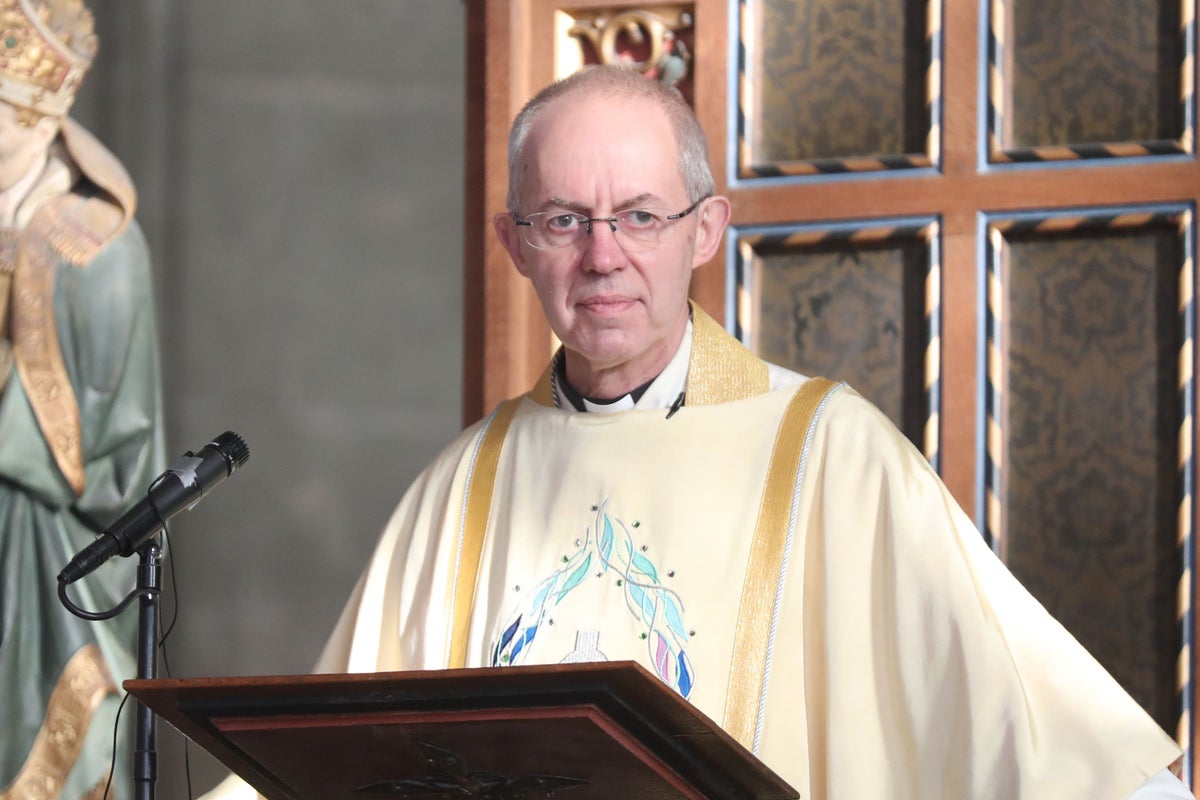
A stand-off over the government’s controversial plans to tackle the small boats crisis is continuing at Westminster after the Lords inflicted a string of fresh defeats backed by the Archbishop of Canterbury.
The Most Rev Justin Welby warned against immigration and asylum being used as a “wedge issue to divide things” as peers pressed their demand for further changes to the Illegal Migration Bill.
These included limits to the detention of children, modern slavery protections and the provision of safe and legal routes for refugees to the UK.
It comes after the Commons overturned a raft of earlier revisions by the unelected chamber, despite rebellions by Tory MPs concerned about the flagship reforms.
The issue of immigration and asylum... is an extraordinarily divisive one— Archbishop of Canterbury
The Home Office had offered several concessions on Monday, including ditching a move to backdate removals to March when the draft legislation was first introduced to parliament.
But the Lords are insisting that the government gives much more ground.
The latest nine defeats means the continuation of the parliamentary tussle over the Bill, known as ping-pong, where the legislation is batted between the Lords and Commons, until agreement is reached.
Mr Welby, who has been an arch-critic of the reforms, condemning them as “morally unacceptable”, defied the government to back all the latest amendments.
These included his own renewed demand for ministers to draw up a 10-year strategy for collaborating internationally on refugees and human trafficking to the UK.
Mr Welby said: “The issue of immigration and asylum… is an extraordinarily divisive one.”
The church leader added: “This is a massive international issue on a generational basis and it needs profound thinking on a long-term basis in order to tackle it.
“Legislation and strategy must be fitted to the problem, not the problem to the legislation. It’s not how it works.
“It is essential that the solutions we go forward to are those which bring together the whole of politics on all sides of both Houses and the unity of our country instead of using this as a wedge issue to divide things.
“So this is a moment of reconciliation and opportunity for deep and profound long-term thought, as happens for instance with climate change.
“This is not a party political issue, it is one in which we must work together, for if we work separately we will fall separately.”
The top Anglican cleric was supported by Labour former home secretary Lord Blunkett who said: “If ever we needed a long-term strategy of 10 years rather than 10 months and not a strategy that’s geared to a General Election, but to solving a problem and to dealing with it internationally and on a long-term basis, we need it now.”
But responding, justice minister Lord Bellamy said: “The amendment is not necessary because the government is well aware of the need to develop a strategy and to cooperate with international partners.”
The Bill is a key part of Prime Minister Rishi Sunak’s bid to deter migrants from making the dangerous Channel crossing in small boats.
It aims to prevent people from claiming asylum in the UK if they arrive through unauthorised means and ensure their prompt removal, either to their home country or a third country.
Other changes made by peers to the Bill during voting spread over more than four hours, included protections for LGBT people facing deportation and a move to require the consideration of asylum claims from migrants arriving by unauthorised routes, if they have not been removed from the UK within six months.
Home Office minister Lord Murray of Blidworth had warned the latter measure could lead to an increase in people trying to “game the system” by launching spurious claims in order to run down the clock.
But Liberal Democrat Lord German said his amendment “simply provides a backstop that protects the taxpayers of this country from indefinitely supporting people existing in the UK in limbo”.
The Bill now heads back to the Commons for the MPs to consider the latest changes made by peers.







